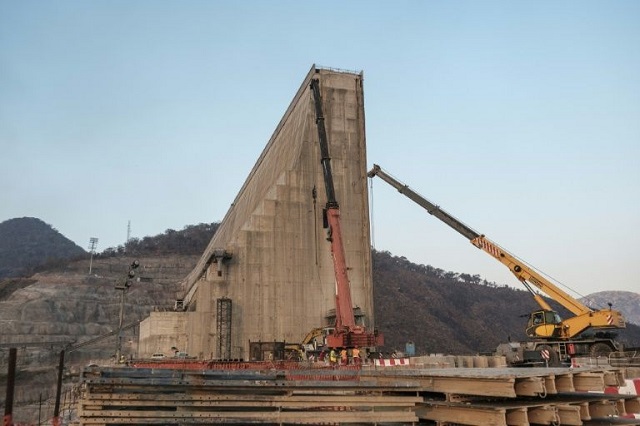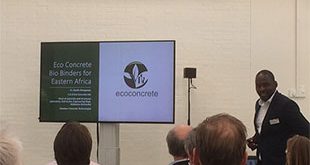
He can intervene in controversy dam is causing between Egypt and some Nile river riparian countries
COMMENT | SIMON KIMOYI | Faced with a current water scarcity and a Republic of Ethiopia determined to go ahead with its second filling of the Grand Ethiopian Renaissance Dam (GERD) this July, Sudan and Egypt have lately intensified cooperation with a number of the Nile Riparian African countries in measures intended to support the development of water resources in these countries, seek alternative ways of maintaining or even better, increase water volumes flowing downstream from the White Nile River as well as influence regional support for their cause.
Positive political and diplomatic inroads have been made in at least four vital Riparian countries such as South Sudan, Uganda, Burundi and the Republic of Congo. In all these countries, Cairo has particularly stepped up water development efforts by funding the construction of rainwater harvesting dams and underground drinking water stations. These countries commonly share the passage route of the White Nile waters as they make their vast journey of over 6,825 km to the Mediterranean Sea in Egypt.
The Nile Riparian comprises 11 African countries including Egypt, Ethiopia, Sudan, South Sudan, Burundi, Eritrea, Kenya, Republic of Congo, Rwanda, Tanzania and Uganda.
Ethiopia, which hosts the source of the Blue Nile made the first filling of the GERD with 4.9 billion cubic meters (bcm) of water in July last year and is planning to repeat the action this July with a bigger volume of 18.4bcm. This more than triples the previous one. It will obviously compound the already existing water shortage in Egypt, whose annual needs are estimated at 80bcm but presently only sharing 55.5bcm of the Blue Nile.
Drawing from previous experiences when after the dialogue mediated by the United States collapsed in January last year and Washington threatened aid cuts against Addis Ababa, this time Ethiopia has flatly rejected proposals advanced by Sudan that suggest a modified international involvement. Addis Ababa prefers an entirely African solution.
What Museveni can do
Acknowledging that neither Sudan and Egypt nor Ethiopia is opposed to the idea of dialogue, there is therefore consensus for a legally binding instrument over the GERD project.
The only controversy is about who should constitute the ‘Third Party’ on this agreement and this is what constitutes the urgent assignment for African statesmen like President Yoweri Museveni of Uganda.
Whereas it is logical for Ethiopia to prefer African wisdom in resolving the impasse, it is also understandable for Khartoum to be certain that the agreement reached will be biding with possible consequences to contrary actions.
The challenge is that the African strength to enforce the agreement on its own is limited. That is why Khartoum seeks to secure the support of international partners including the United Nations, European Union and the United States to participate as ‘principal’ signatories beyond the observer status.
Therefore, as the clock clicks towards the Ethiopian timeline of July for the second filling of the Dam, the Ugandan leader can intervene with, first of all, a view of finding a middle position in determining who should constitute the ‘third party’ and define their specific roles to the proposed dialogue and its subsequent agreement.
But more specifically, Museveni should mediate by seeking the views of Cairo, Khartoum and Addis-Ababa on how best to respect and effectively enforce provisions of the resultant agreement from the dialogue because this is the ‘silent’ bone of contention.
The more sustainable solution
As these talks proceed, it is imperative, as Egypt seems to be doing, to start an alternative process of exploring alternative sources of water as a long term sustainable solution to the water shortage and other related hazards being experienced by both Sudan and Egypt. Proposals to this end, have previously been suggested by Uganda in regard to exploiting the massive Congo River, not only for the benefit of Egypt and Sudan but also the entire African Equatorial plateau.
****
Simon Kimoyi is PhD Candidate, Kampala International University
 The Independent Uganda: You get the Truth we Pay the Price
The Independent Uganda: You get the Truth we Pay the Price



